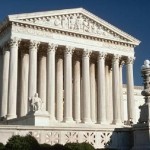Will Wisconsin Chart Its Own Course on Environmental Issues?
In a series of recent cases, the United States Supreme Court has sharply restricted the power of the United States Environmental Protection Agency to effectively exercise jurisdiction over natural resources within the states. These include West Virginia v. EPA (endorsing the “major questions doctrine” and restricting EPA’s power to require cleaner energy generation without clear congressional authorization); Sackett v. EPA (limiting the scope of EPA’s authority over “waters of the United States,” and eliminating federal authority over many wetlands); Loper Bright Enterprises v. Raimondo (overruling the Chevron doctrine of deferring to agency interpretations of law in most circumstances); SEC v. Jarkesy (holding that agencies may not employ in-house tribunals, in lieu of jury trials, when seeking civil penalties); and Corner Post v. Board of Governors, FRS (pausing the statute of limitations to challenge agency regulations until the plaintiff suffers injury).
The shift away from federal power elevates the role states can play in charting a course on environmental issues. The Sackett Court emphasized that states, not the EPA, hold the “primary responsibilities and rights . . . to prevent, reduce, and eliminate pollution” and “to plan the development and use . . . of land and water resources.” Some evidence supports the idea that states will be eager to fill gaps in federal regulation of the environment and corresponding enforcement activities. Wisconsin, for example, has a rich history of water law. All the way back in 1853, the Wisconsin Supreme Court endorsed the principle that “if [a] stream is navigable in fact, the public have the right to use it for the purposes of navigation, and the right of the owner [of abutting land] is subject to the public easement.” Jones v. Pettibone, 2 Wis. 308 (1853). In the 20th century, the state became a national leader in conservation and was at the vanguard of the development of the public trust doctrine.
Even in the 21st century, Wisconsin authorities have sometimes stepped in to protect the state’s natural resources when federal jurisdiction receded. In 2001, for example, the Supreme Court invalidated the “migratory bird rule,” under which federal agencies had exercised jurisdiction over pollutant discharges into certain isolated intrastate waters. The decision, Solid Waste Agency of Northern Cook County v. U.S. Army Corps of Engineers, removed a sizeable percentage of wetlands from federal protection. The Wisconsin Legislature acted almost instantly, taking only a few months to enable state control over such discharges by creating a new category of “nonfederal wetlands.” The state law expressly addressed the Supreme Court’s decision. By its terms, it applies when discharges into wetlands are determined “not to be subject to regulation under [the federal Clean Water Act] due to the decision in Solid Waste Agency of Northern Cook County v. U.S. Army Corps of Engineers . . . or any subsequent interpretations of that decision by a federal agency or by a federal district or federal appellate court that applies to wetlands located in this state.” Wis. Stat. 281.36(1m)(a)1 (as created by 2001 Wisconsin Act 6). The act effectively restored protection of wetlands that the Supreme Court removed from federal jurisdiction in SWANCC, albeit under state authority. Later, the state implemented an innovative water quality trading program to help curb nonpoint source pollution and meet the state’s aggressive water quality limits for phosphorous pollution. Wisconsin citizens can be proud of the state’s progress in those areas and many others.
But more recent developments are less promising. The ballyhooed “Year of Clean Drinking Water in Wisconsin” was less successful than Governor Evers probably hoped. Similarly, after Assembly Speaker Robin Vos created a “Water Quality Task Force” in 2019, all thirteen of the bills it proposed died in the state Senate. In 2017, the Legislature removed some smaller wetlands from protection under state law, backtracking from the 2001 enactment. And the past few years have been marked by political skirmishes over the power of state agencies to enact groundwater standards for PFAS and other chemicals, disputes over the Department of Natural Resources’ power to require environmental cleanups, and the delayed release of state funds earmarked for remediation activities.
Wisconsin’s uneven record on environmental protection is certainly not unique. But the state–or rather, all the states–are being thrust to the forefront in such matters. Of course, a state will not necessarily regulate anew, or step up enforcement, just because it has the opportunity to do so. And any reckoning with environmental issues will no doubt have to wait until after the November elections currently dominating politics. Whenever the dust settles, it will be interesting to see how states respond in the new era of a somewhat-diminished EPA.



